Middle East
Iran confirms next round of nuclear talks with US set for Rome on Saturday | Nuclear Energy News
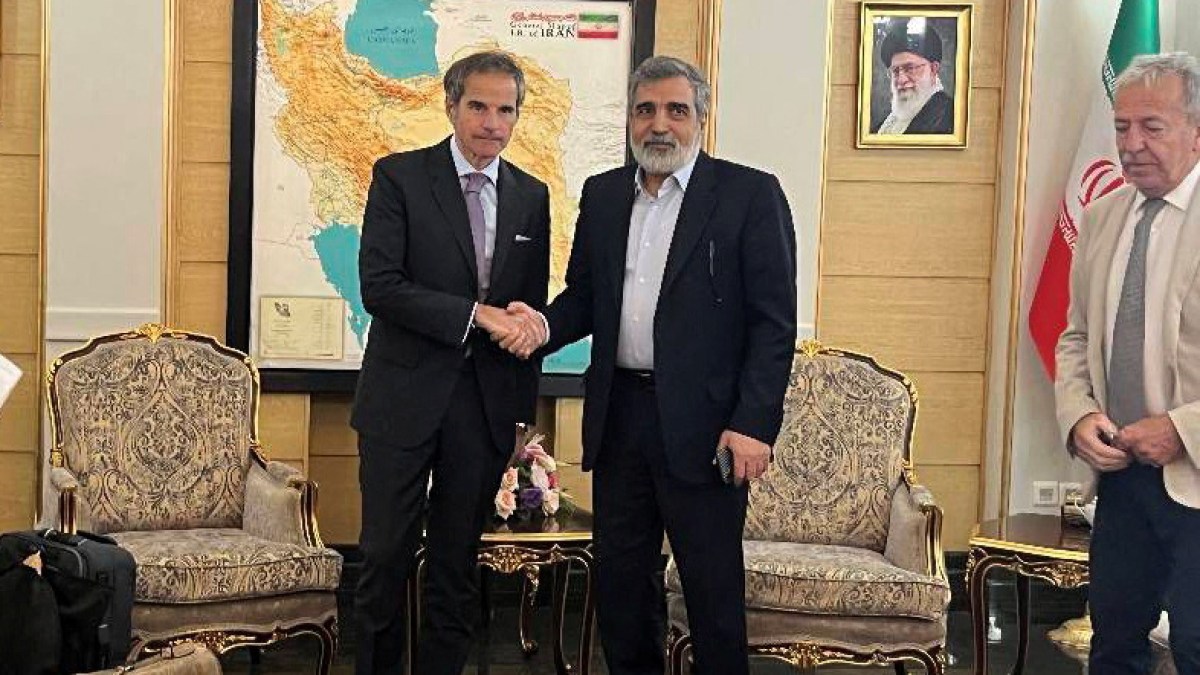
The announcement comes as chief of nuclear watchdog IAEA arrives in Tehran for talks that may revolve around accessibility for inspectors.
Iran has confirmed that its next round of nuclear talks with the United States this weekend will be held in Rome after earlier confusion over where the negotiations would be conducted.
Wednesday’s announcement on Iranian state television came as Iran’s President Masoud Pezeshkian formally approved the resignation of one of his vice presidents, who had served as Tehran’s key negotiator in its 2015 nuclear deal with world powers.
The head of the United Nations nuclear watchdog, Rafael Grossi, also arrived in Tehran on Wednesday for talks that could include negotiations over what access his International Atomic Energy Agency (IAEA) inspectors can get under any proposed deal.
The state TV announcement said Oman will again mediate the talks on Saturday in Rome. Oman’s foreign minister served as an interlocutor between the two sides during negotiations last weekend in Muscat, the Omani capital.
On Monday, some officials initially identified Rome as hosting the negotiations, only for Iran to insist early on Tuesday that its team would return to Oman. US officials so far have not said publicly where the talks will be held, though US President Donald Trump did call Oman’s Sultan Haitham bin Tariq on Tuesday while the ruler was on a trip to the Netherlands.
The negotiations come amid soaring tensions between the US and Iran over the latter’s nuclear development.
Trump repeatedly has threatened to unleash air strikes targeting Iran’s nuclear programme if a deal isn’t reached. Iranian officials increasingly have warned that they could pursue a nuclear weapon with their stockpile of uranium enriched to near weapons-grade levels.
‘Like a puzzle’
Grossi arrived in Tehran for meetings with Pezeshkian and others, which will likely be held on Thursday.
Shortly before his arrival, Grossi warned that Iran was “not far” from possessing a nuclear bomb.
“It’s like a puzzle. They have the pieces, and one day they could eventually put them together,” Grossi told French newspaper Le Monde in an interview published on Wednesday.
“There’s still a way to go before they get there. But they’re not far off, that has to be acknowledged,” he said.
Since the nuclear deal’s collapse in 2018 with Trump’s unilateral withdrawal of the US from the accord, Iran has abandoned all limits on its programme, and enriches uranium to up to 60 percent purity – near weapons-grade levels of 90 percent.
Surveillance cameras installed by the IAEA have been disrupted, while Iran has barred some of the Vienna-based agency’s most experienced inspectors. Iranian officials have also increasingly threatened that they could pursue atomic weapons, something that Western countries and the IAEA have been worried about for years.
Any possible deal between Iran and the US likely would need to rely on the IAEA’s expertise to ensure Tehran’s compliance. And despite tensions between Iran and the agency, its access has not been entirely revoked.
‘Non-negotiable’
Iran’s Foreign Minister Abbas Araghchi on Wednesday warned the US about taking contradictory stances in the talks.
His remarks came after comments from US Middle East envoy Steve Witkoff, who this week initially suggested a deal could see Iran go back to 3.67 percent uranium enrichment – like in the 2015 deal reached by the administration of former US President Barack Obama. Witkoff then followed up by saying, “A deal with Iran will only be completed if it is a Trump deal.”
“Iran must stop and eliminate its nuclear enrichment and weaponisation program,” Witkoff wrote on the social platform X. “It is imperative for the world that we create a tough, fair deal that will endure, and that is what President Trump has asked me to do.”
In response, Araghchi issued a warning to the US.
“Enrichment is a real and accepted issue, and we are ready for trust-building about possible concerns,” Araghchi noted. But losing the right to enrich at all “is non-negotiable”, he said.
Middle East
Iran says progress in nuclear talks with US, confirms third round next week | News
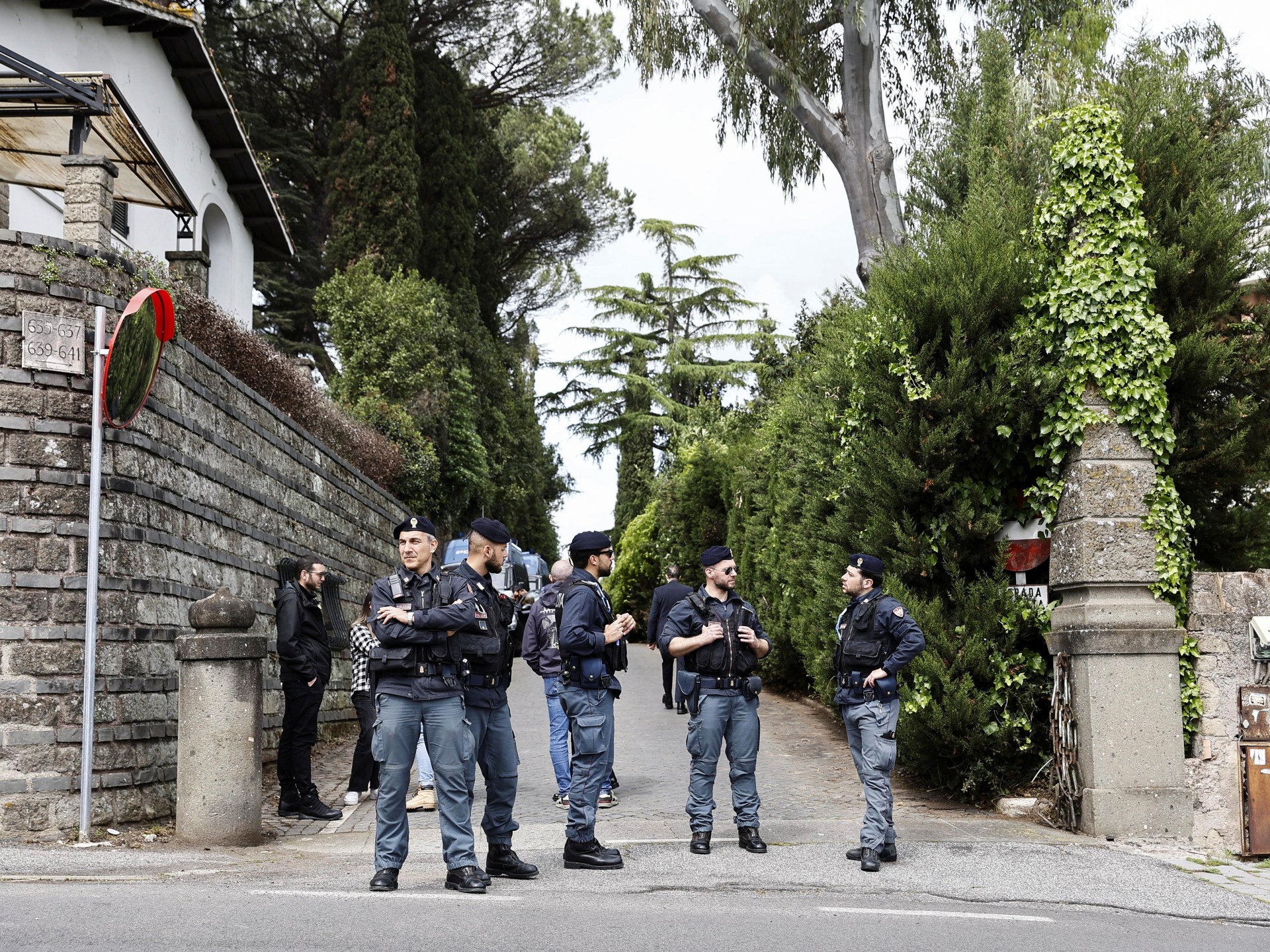
After technical talks, senior negotiators expected to reunite on April 26, according to Iran’s foreign ministry.
Iran and the United States have completed a second round of indirect nuclear negotiations, which Iran’s foreign minister has described as “constructive” and moving forward with further meetings planned in the coming week.
Abbas Araghchi and US Middle East envoy Steve Witkoff held four hours of indirect talks at Oman’s embassy in the Italian capital, Rome, on Saturday, according to Araghchi.
“We succeeded in reaching a better understanding on certain principles and goals,” the diplomat was quoted by the semiofficial Tasnim news agency as saying. “The negotiations were conducted in a constructive atmosphere and are progressing.”
There has been no readout yet of the meeting from the US side.
The delegations – led by Araghchi and Witkoff, a billionaire real estate executive whom US President Donald Trump has dispatched on numerous foreign policy missions – stayed in separate rooms in the embassy as Omani Foreign Minister Badr al-Busaidi shuttled messages between them, according to Iranian officials.
Iran’s Ministry of Foreign Affairs said the parties will hold more indirect, technical-level talks in the coming days, followed by another meeting with senior officials on April 26.
There were useful indirect talks today between Iran and the United States conducted by Oman Foreign Minister in a constructive atmosphere.
The two sides agreed to continue the indirect talks in few days at technical level to be followed by another round at their own level on…
— Esmaeil Baqaei (@IRIMFA_SPOX) April 19, 2025
“I hope that after next week’s technical sessions, we’ll be in a better position,” Araghchi said, according to Tasnim. “There’s no reason for excessive optimism or pessimism.”
‘Negotiations to pick up’
Al Jazeera’s James Bays, reporting near the Omani diplomatic compound in Rome, said the Iranian response was “very positive” for a delegation that “had seemed pretty negative going into the talks”.
Next week’s planned talks mean “the pace of negotiations is going to be picked up”, Bays said.
The latest meeting comes a week after Iran and the US came together in Muscat for their first high-level discussions since Trump in 2018 unilaterally abandoned a landmark nuclear accord signed and brokered by world powers in 2015.
The Iranians “are looking for a kind of consistency when it comes to the current talks”, Al Jazeera’s Tohid Asadi reported from Tehran.
Will US accept civilian nuclear programme?
Western governments, including the US, have long accused Iran of seeking to develop nuclear weapons – an allegation Tehran has denied, insisting its nuclear programme is solely for peaceful civilian use. On Wednesday, the head of the International Atomic Energy Agency, Rafael Grossi, said Iran was “not far” from possessing a nuclear weapon.
Grossi was also in Rome on Saturday meeting Italian Foreign Minister Antonio Tajani. Grossi’s nuclear watchdog would likely be central in verifying compliance by Iran should a deal be reached, as it did with the 2015 accord.
The US and Iran have had no diplomatic relations since shortly after Iran’s 1979 Islamic Revolution. After returning to office in January, Trump revived his “maximum pressure” sanctions campaign against Tehran, but in March, he sent a letter to Iranian Supreme Leader Ali Khamenei calling for renewed negotiations – while warning of military consequences if diplomacy fails.
“I’m not in a rush” to use force, Trump said on Thursday. “I think Iran wants to talk.”
On Friday, Araghchi said the US showed “a degree of seriousness” during the first round of talks but questioned Washington’s “intentions and motivations”.
Bays said the heart of the dispute remains whether Iran may maintain a civilian nuclear programme – or whether, as hardliners in Washington insist, it must dismantle its nuclear programme entirely.
“All they’ve been talking about last week in Muscat and here in Rome is a framework for the discussions and what they want to achieve,” Bays said. “They have not been discussing the nuclear detail, … and the devil is in the detail on these things.”
Middle East
Tunisian court hands opposition figures lengthy jail terms | Human Rights News
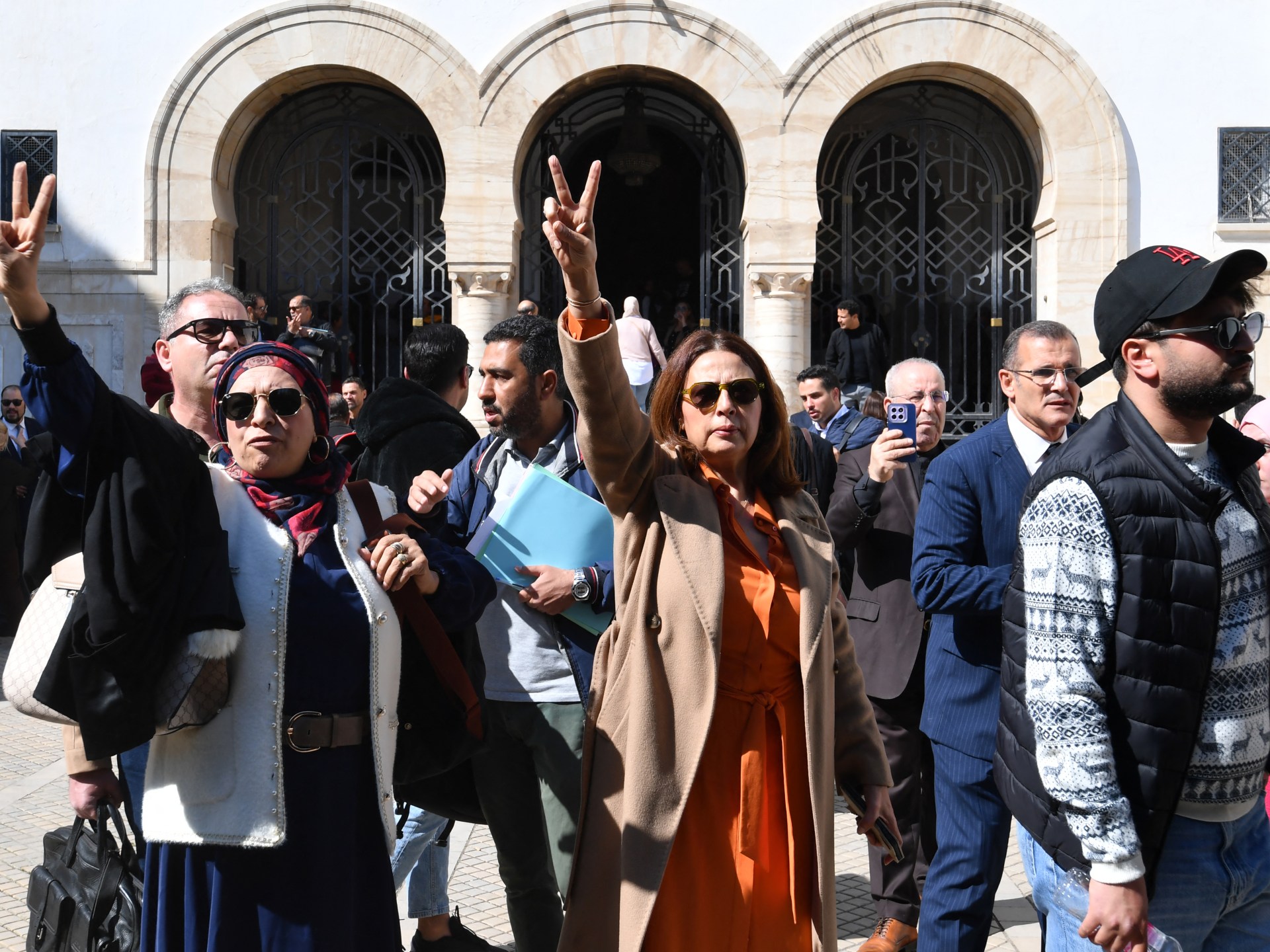
Dozens of defendants found guilty of “conspiracy against state security” and given sentences of 13 to 66 years.
Dozens of opposition figures in Tunisia have been handed lengthy prison terms on national security charges, according to state media.
A number of the North African country’s most senior opposition politicians were among 40 people sentenced on Saturday, including a former justice minister and diplomats. Critics insist the charges are trumped up and say they are symbolic of President Kais Saied’s authoritarian rule.
The TAP state news agency, quoting an unnamed judicial official, reported that the sentences ranged from 13 to 66 years.
An official from the anti-terrorism prosecutor’s office was quoted by Jawhara FM as saying the defendants were found guilty of “conspiracy against state security”, and “belonging to a terrorist group”, including liaising with “foreign powers” to undermine Saied’s rule.
The precise details of the trial remain cloudy, with the exact number of those on trial and the specific charges they face unclear.
It was not immediately clear either on Saturday whether all of the estimated 40 defendants in the case, which has become known as the “conspiracy case” and been running for two years or so, were found guilty and given prison terms.
About 20, many of whom have fled Tunisia, were sentenced in absentia, including the French intellectual, Bernard-Henri Levy, who is accused of being a conduit between defendants and foreign parties.
“President Saied has weaponised Tunisia’s judicial system to go after political opponents and dissidents, throwing people in arbitrary detention on flimsy evidence and pursuing them with abusive prosecutions,” Bassam Khawaja, deputy Middle East and North Africa director at Human Rights Watch, told Al Jazeera earlier this month.
On Friday evening, defence lawyers denounced the trial after the judge finished reading the accusations and began deliberation without hearing from either the prosecution or the defence.
“In my entire life, I have never witnessed a trial like this. It’s a farce, the rulings are ready, and what is happening is scandalous and shameful,” said lawyer Ahmed Souab.
Authorities have accused the defendants, who also include the former head of intelligence, Kamel Guizani, as well as media figures, of attempting to destabilise the country and overthrow Saied.
A number of the defendants – including Issam Chebbi, Ghazi Chaouachi and Jawhar Ben Mubarak – have been in custody since being detained in 2023. Chebbi is a member of the opposition National Salvation Front coalition.
“The authorities want to criminalise the opposition,” Chebbi said on Friday.
Saied rejects accusations that he is a dictator. He said in 2023 that the accused politicians were “traitors and terrorists” and that any judge who would acquit them would be an accomplice.
Saied consolidated his power in 2021 by dissolving the parliament and sacking the then-prime minister.
The opposition leaders involved in the case accused him of staging a “coup”.
They say the charges against them were fabricated to stifle the opposition and establish a one-man, repressive rule.
Some of Tunisia’s most prominent opposition leaders are already in prison.
Rached Ghannouchi, the head of Ennahdha, was arrested in April 2023 and sentenced to one year in prison on charges of incitement.
Earlier this year, he was handed a further 22-year sentence on charges that included plotting against state security. He was also sentenced to three years for accusations that his party received foreign contributions.
Middle East
Deadly, sombre Good Friday as 58 people killed in Israeli attacks on Gaza | Israel-Palestine conflict News
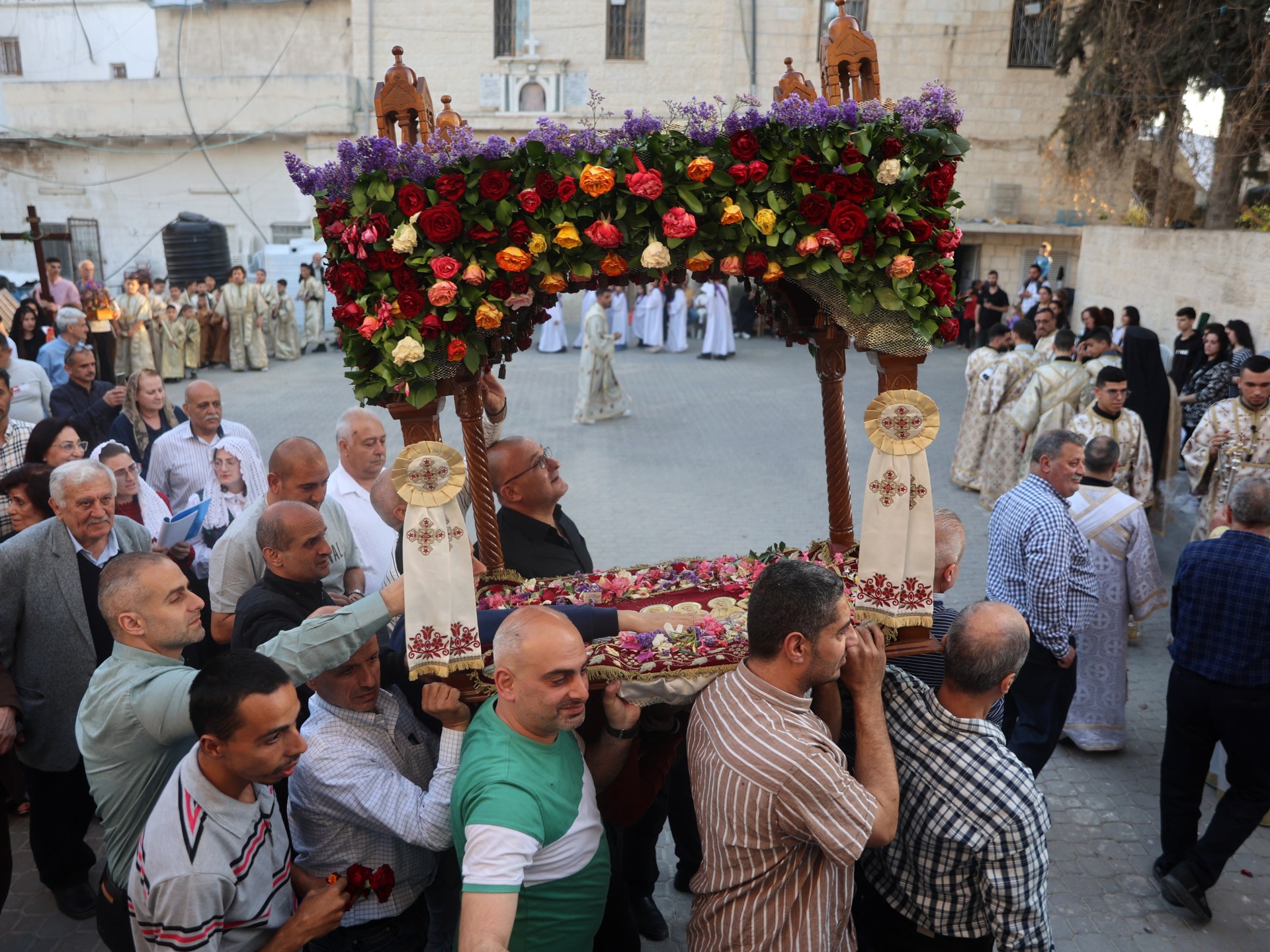
Palestinian Christians in Gaza and the occupied West Bank are holding temperate gatherings leading up to Easter.
Israeli strikes on Gaza have killed at least 58 Palestinians in one day as Christians mark Good Friday in the besieged and bombarded enclave.
More than half of the casualties were in Gaza City and northern Gaza, but deadly attacks took place across the Palestinian Strip, including in Khan Younis and Rafah in the south, medical sources told Al Jazeera on Friday.
The Israeli military said troops were operating in the Shaboura and Tal as-Sultan areas near Rafah, as well as in northern Gaza, where Israel has taken control of large areas east of Gaza City.
On Friday, Israel’s defence minister, Israel Katz, repeated that Israel intended to achieve its war aims.
“The [Israeli army] is currently working towards a decisive victory in all arenas, the release of the hostages, and the defeat of Hamas in Gaza,” he said in a statement.
Palestinian Christians in Gaza however continued to hold temperate gatherings leading up to Easter, amid the attacks.
Speaking to Al Jazeera from a local church, Ihab Ayyad said he used to gather with other congregants and visit his neighbours’ homes every year to celebrate.
“This year, we didn’t make the visits because of the total destruction everywhere, as the [Israeli] occupation forces have levelled most of the houses of my relatives and my neighbours,” Ayyad said. “A lot of my relatives and neighbours were martyred or displaced in different places. We haven’t celebrated because we feel very sad.”
Ramez al-Soury said he used to travel out of Gaza to Bethlehem or Jerusalem for the holy week.
But now, an “atmosphere of war” permeates Gaza. “The death smell is everywhere. The smell of killing and destruction is putting a lot of pressure on us,” he said.
Reporting from Gaza City, Al Jazeera’s Hani Mahmoud said the Christian community is holding onto their faith and has gathered at one of the oldest churches in the world in Gaza – not in defiance but in devotion.
“In Gaza, Good Friday is the power of faith and the quiet strength of those who still believe in peace even when the world around them is nothing but a stage filled with violence and death,” he said.
West Bank settler violence
Rituals to mark Good Friday and Easter have also been held in the occupied West Bank.
There are about 50,000 Palestinian Christians in the region. Israeli authorities, however, require them to acquire permits to travel to Jerusalem, making it difficult for many to join those celebrations.
Moreover, Israeli settlers and the military also attacked Palestinian people on their land in the town of Biddya, in the Salfit governorate in the occupied West Bank, according to Al Jazeera Arabic on Friday, tempering the celebrations.
The Palestine Red Crescent said that a Palestinian was injured in the attack.
Local sources also told Al Jazeera Arabic that dozens of settlers stormed Jabal al-Urma, a hill in the town of Beita in the Nablus governorate, under the protection of the Israeli army.
Settlers are Israeli citizens who live illegally on private Palestinian land in the occupied West Bank and East Jerusalem.
Israeli settler and military violence has soared across the West Bank – particularly in the north of the territory – since the war on Gaza began in October 2023. The United Nations has said this violence has displaced roughly 40,000 Palestinians since Israel began a new military operation in the occupied West Bank in January.
-

 Lifestyle1 day ago
Lifestyle1 day agoSweets from the sky! A helicopter marshmallow drop thrills kids in suburban Detroit
-

 Sports1 day ago
Sports1 day agoAaron Rodgers ‘not holding anybody hostage’ as he decides his future, retirement a possibility
-

 Education1 day ago
Education1 day agoHarvard’s battle with the Trump administration is creating a thorny financial situation
-
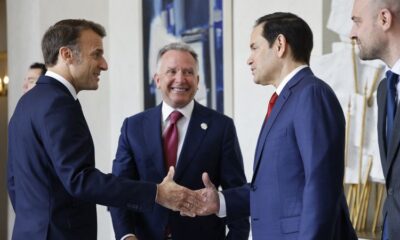
 Europe2 days ago
Europe2 days agoUS, Ukraine and European officials hold ‘excellent exchange’ in Paris, in highest level talks in weeks
-
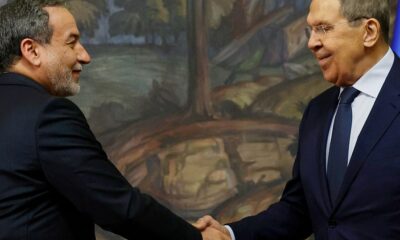
 Africa1 day ago
Africa1 day agoIran seeks Russia’s support for its nuclear talks with US
-

 Sports2 days ago
Sports2 days agoLos Angeles Rams honor first responders by conducting 2025 NFL Draft from Los Angeles Fire Department
-

 Education2 days ago
Education2 days agoTrump admin threatens to stop Harvard from enrolling foreign students
-

 Middle East2 days ago
Middle East2 days agoSaudi defence minister visits Tehran before Iran-US talks | United Nations News




